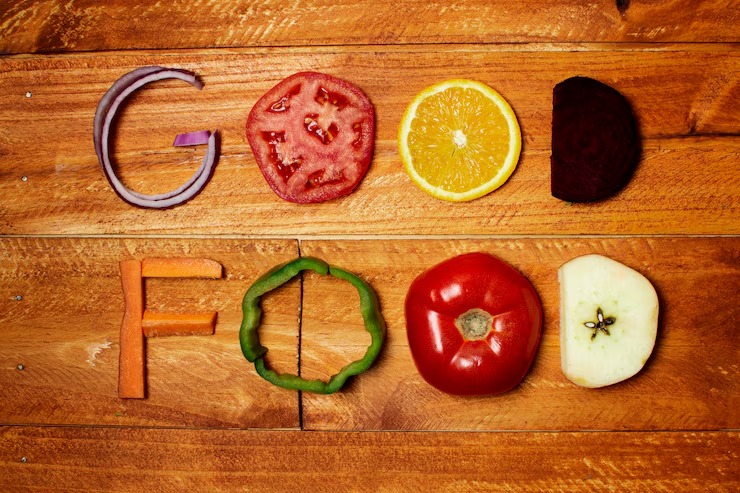Best Foods for a Healthy Bladder and Prostate
Introduction The bladder and prostate are key components of the male urinary and reproductive systems. Keeping them healthy is important, especially as men age, since conditions like benign prostatic hyperplasia (BPH), urinary tract infections (UTIs), and prostate cancer become more likely. One of the most effective ways to maintain their health is through a well-balanced diet. In this blog, we’ll explore the best foods for a healthy bladder and prostate, based on current research and guided by insights from Dr. Sushrut S Fuladi. You’ll discover simple food choices that can make a meaningful difference to your urinary health.
Quick Overview: The Bladder and Prostate
Bladder: A storage organ for urine before elimination. Its function can be affected by infections or an overactive bladder.
Prostate: A small gland below the bladder that contributes to seminal fluid. It tends to enlarge with age, potentially leading to urinary difficulties.
Both organs respond strongly to inflammation, hormonal changes, and dietary influences.
The Role of Diet in Urinary Health
Scientific evidence shows that certain nutrients help lower inflammation, regulate hormones, and support urinary health.
A 2021 study in Nutrients found that diets rich in fruits, vegetables, and healthy fats are linked to lower risks of prostate enlargement and bladder issues.
Let’s explore the top food groups that contribute to better bladder and prostate function.
1. Cruciferous Vegetables
Examples: Broccoli, cabbage, kale, cauliflower, Brussels sprouts
Benefits:
Contain sulforaphane, which may protect against prostate cancer.
Help reduce inflammation and support detoxification.
Research in the Journal of the National Cancer Institute suggests men who regularly consume cruciferous vegetables have a notably lower risk of prostate cancer.
How to Use: Lightly steam or stir-fry and include in daily meals.
2. Tomatoes and Lycopene-Rich Foods
Examples: Cooked tomatoes, watermelon, pink grapefruit
Benefits:
High in lycopene, a potent antioxidant.
Associated with a reduced risk of prostate issues.
Harvard research indicates that men who eat tomato products frequently have a significantly reduced prostate cancer risk.
How to Use: Cook tomatoes in olive oil to improve lycopene absorption.
3. Omega-3 Fatty Acids
Examples: Salmon, sardines, flaxseeds, chia seeds
Benefits:
Anti-inflammatory effects.
Support hormonal and prostate health.
According to the American Journal of Clinical Nutrition, omega-3 intake may help slow the development of prostate conditions.
How to Use: Include fatty fish in meals 2–3 times a week.
4. Berries
Examples: Blueberries, cranberries, strawberries
Benefits:
Rich in antioxidants and vitamin C.
Protect against oxidative damage and bladder infections.
Cranberries contain compounds that prevent bacteria from adhering to bladder walls, helping reduce UTIs.
How to Use: Add to breakfast bowls or smoothies.
5. Nuts and Seeds
Examples: Pumpkin seeds, Brazil nuts, walnuts
Benefits:
Pumpkin seeds provide zinc, essential for prostate health.
Brazil nuts offer selenium, linked to reduced prostate inflammation.
The Urology Journal notes that low zinc levels may contribute to prostate enlargement symptoms.
How to Use: Snack on a small portion of raw, unsalted nuts daily.
6. Green Tea
Benefits:
Contains catechins and antioxidants with anti-inflammatory properties.
May help reduce prostate swelling and improve urinary function.
A 2012 article in Chinese Medicine Journal found green tea can lower PSA levels, a marker for prostate issues.
How to Use: Drink 2–3 cups per day for best results.
7. Water and Hydrating Foods
Examples: Cucumber, celery, watermelon, plain water
Benefits:
Promote regular bladder flushing.
Help prevent infections and irritations.
How to Use: Drink 8–10 glasses of water daily. Avoid excess caffeine or alcohol.
Foods to Limit or Avoid
To protect your bladder and prostate, reduce or avoid:
These can irritate the urinary system or increase inflammation.
Expert Advice from Dr. Sushrut S Fuladi
“As a urologist, I often advise patients that diet plays a crucial role in managing urinary symptoms. A diet rich in anti-inflammatory foods and essential nutrients can significantly improve bladder function and prostate health.”
Dr. Fuladi’s Practical Tips:
Sample Daily Meal Plan
Meal----- Food Suggestions Breakfast---- Oatmeal topped with blueberries and flaxseeds, green tea Snack ---- Handful of pumpkin seeds or Brazil nuts Lunch ---- Grilled salmon with steamed broccoli and whole grains Afternoon ---- Smoothie with banana, spinach, and unsweetened almond milk Dinner ---- Stir-fried tofu, cauliflower, and tomato soup Fluids ---- 8–10 glasses of water, 2–3 cups of green tea
Conclusion
Maintaining bladder and prostate health doesn’t require drastic changes—simple dietary adjustments can offer lasting benefits. Prioritize foods that are plant-based, anti-inflammatory, and nutrient-rich, while staying well hydrated.
If you have concerns about urinary symptoms or prostate health, consult with a healthcare provider like Dr. Sushrut S Fuladi to receive tailored advice.



 Media Solutions
Media Solutions